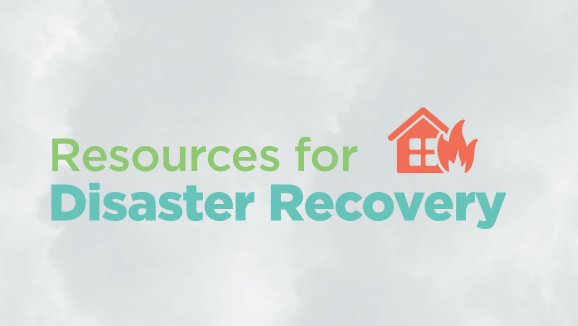
Information on Food Safety, Replacing Lost Documents and Talking to Children about Disasters
KNOXVILLE, Tenn. – Tennessee is reeling from deadly tornadoes that raced across the state in the early morning hours of March 3, and now comes the cleanup and recovery. The physical and the emotional aspects will take months, perhaps years. The storms did extensive damage particularly in downtown Nashville, and then moved through Donelson, Mt. Juliet, Lebanon and Cookeville. Lives were lost; homes and businesses destroyed. Total devastation.
University of Tennessee Extension has resources to help the people of our state as they rebuild and recover. UT Extension has offices in all 95 Tennessee counties, with agents, experts and specialists in agriculture, family and consumer sciences, and 4-H youth development.
“We have Extension agents with boots on the ground, and my hope is people will turn to their county offices for reliable resources, not only in times of disaster, but for all of life’s twists and turns,” says Karen Sergent, a family and consumer sciences specialist with UT Extension. “Our county agents make a lifestyle of helping neighbors in our communities build and rebuild healthier families through research-based resources and education in finances, nutrition, relationships and health and housing.”
Sergent encourages people affected by the tornadoes to check the FCS website called University of Tennessee Extension Disaster Recovery Resources. It can be found online at ag.tennessee.edu/fcs/Pages/DisasterRecovery/default.aspx.
The website offers information about such disaster-related topics as handling food after refrigeration has been destroyed, including food safety and preservation, what to keep and what to throw out.
Another impact from a disaster such as a tornado is document loss. Tax information, birth certificates, marriage licenses, financial records and more are often completely destroyed or missing. How do you replace important papers? The site includes pointers as well as information regarding filing insurance claims after a destructive event.
UT Extension FCS materials also include information on helping people deal with the trauma of a disaster, which can be frightening to anyone of any age. But a weather event like a tornado roaring through your neighborhood can be especially troublesome for your kids, who may show signs of anxiety and fear days and weeks after the storm hits.
“During times of uncertainty, it’s critical to let children know they’re safe and loved and not forgotten in all the chaos,” says Heather Sedges Wallace, a human development specialist with UT Extension FCS. Wallace says it’s important for parents to listen to their children during this difficult time. “Help children shift their focus from the fear of the unknown to concentrating on the helpers surrounding them with support. Instead of promising children they won’t be affected by tragedy, remind them it’s our job as their caregivers to pick up the pieces when it inevitably occurs. Clear statements about next steps are more helpful to children then saying ‘everything will be fine.’ Specifics stop the growing unknown ‘monsters’ that plague children when they are unsure of what comes next.”
Along with information on how to recover from a disaster, the UT Institute of Agriculture also researches, and teaches the weather itself, including weather patterns that may lead to events such as tornadoes.
Climatologist Joanne Logan with UTIA Biosystems Engineering and Soil Science says Tennessee is not truly part of the “tornado alley” often thought of when mentioning some midwestern states, but our state does lead the nation in percentage of nighttime tornadoes, with 46% of our total number of twisters coming in the dark.
“Our state has a high percentage of tornadoes that occur at night due to some unique meteorological conditions that make them more likely to form,” Logan says. “Unfortunately, fatalities and injuries are more likely to happen during late night events because people are less likely to be warned and residential homes are more likely to be severely damaged than larger structures like schools, offices and stores.”
The U.S. Department of Homeland Security recommends a number of steps everyone can follow to prepare for a future severe weather event or another type of emergency. See their website www.ready.gov/severe-weather for details.
Through its land-grant mission of research, teaching and extension, the University of Tennessee Institute of Agriculture touches lives and provides Real. Life. Solutions. utia.tennessee.edu.